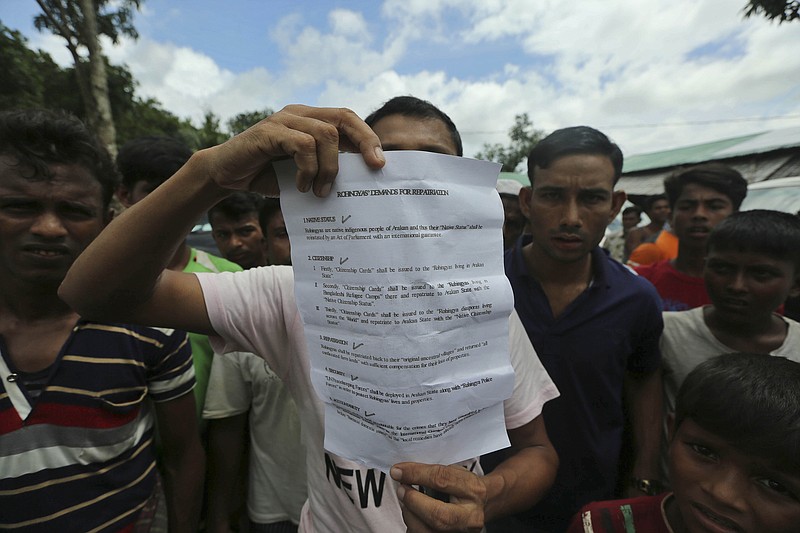COX’S BAZAR, Bangladesh (AP) — No Rohingya Muslims staying in crowded refugee camps in Bangladesh turned up for a planned repatriation to Myanmar on Thursday because they want to be guaranteed safety and citizenship first, officials said.
Bangladesh refugee commissioner Abul Kalam said none of the 295 families interviewed since Tuesday by the Bangladesh government and the U.N.’s refugee agency had agreed to return to Myanmar.
“Not a single Rohingya wants to go back without their demands being met,” he told reporters.
Rohingya Muslims have long demanded that Myanmar should give them citizenship, safety and their own land and homes they left behind.
Myanmar earlier said the repatriation would start Thursday. The Buddhist-majority country has certified more than 3,000 refugees from more than 1,000 families as eligible for repatriation.
Bangladesh Prime Minister Sheikh Hasina said her government will not force the refugees to return and the repatriation will only happen if they are willing.
More than 700,000 Rohingya fled across the border to Bangladesh after Myanmar’s military began a harsh counterinsurgency campaign against Rohingya in August 2017 in response to an insurgent attack. The army-led campaign involved mass rapes, killings and the burning of homes.
Myanmar has refused to recognize Rohingya as citizens or even as one of its ethnic groups, rendering them stateless, and they also face other forms of state-sanctioned discrimination.
The UNHCR said in a statement Thursday that many Rohingya interviewed actually want to go home if the conditions are met.
“Many stated that they do hope to go home to Myanmar as soon as conditions allow and that assurances regarding their citizenship status, freedom of movement, and security in Myanmar could be provided,” it said.
It said U.N. agencies need access to the refugees’ home areas.
“Building confidence is essential … it is essential that UNHCR and UNDP have more predictable and effective access to refugees’ places of origin and potential areas of return in Rakhine state,” it said.
Officials said the situation in the camps was calm Wednesday and Thursday, unlike in November last year, when thousands protested what they feared might be a forced repatriation then.
Nevertheless, Ramzan Begum said her mother-in-law had fled their home in the refugee camp for an unknown destination Wednesday night and had not returned Thursday.
“She told us she will not go back (to Myanmar) and left the home last night,” Begum said.
Many refugees have said they want to go back under direct U.N. supervision, not under the Myanmar government.
A U.N.-established investigation last year recommended the prosecution of Myanmar’s top military commanders on charges of genocide, war crimes and crimes against humanity for the crackdown on the Rohingya. Myanmar dismissed the allegations.

